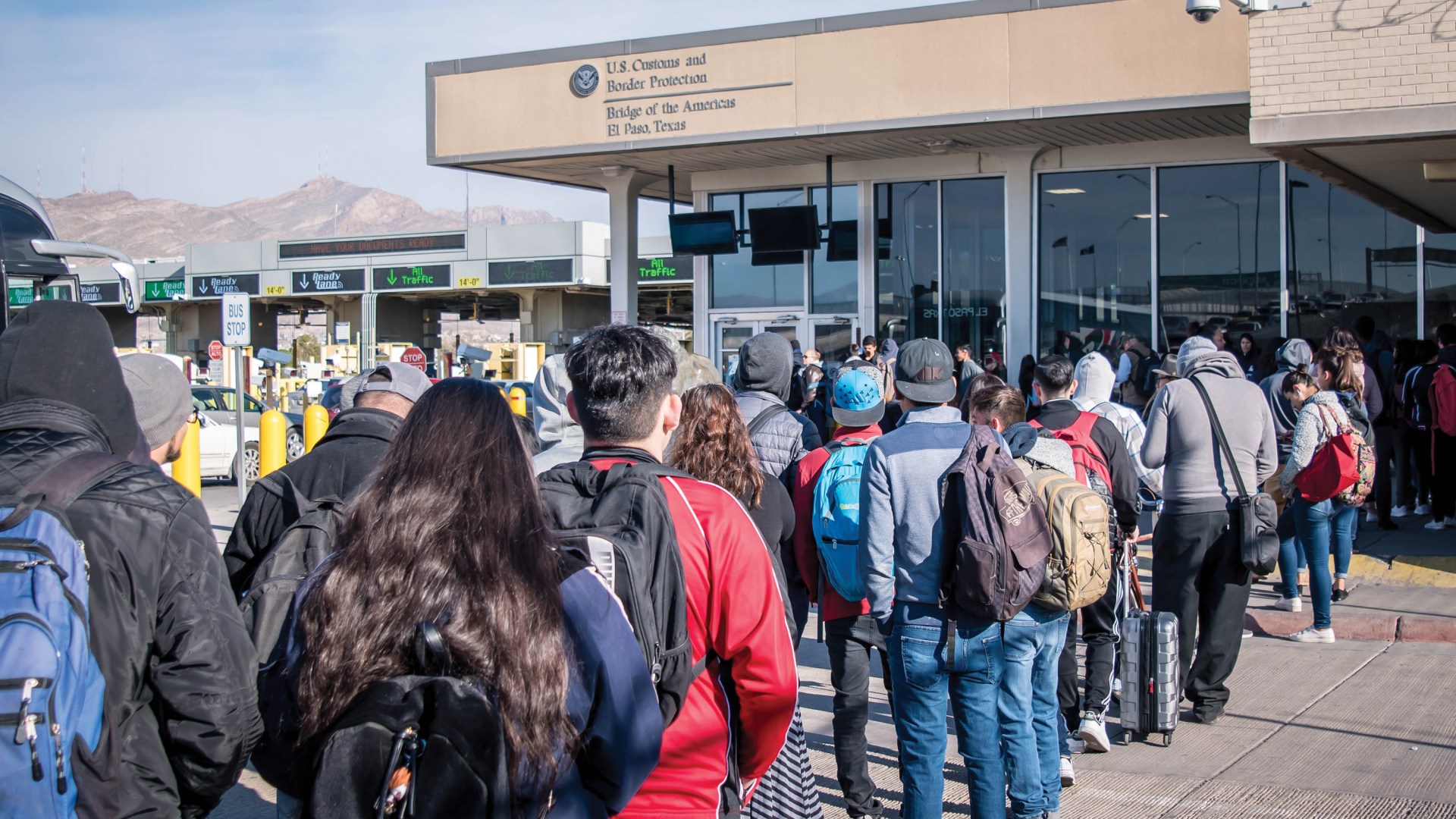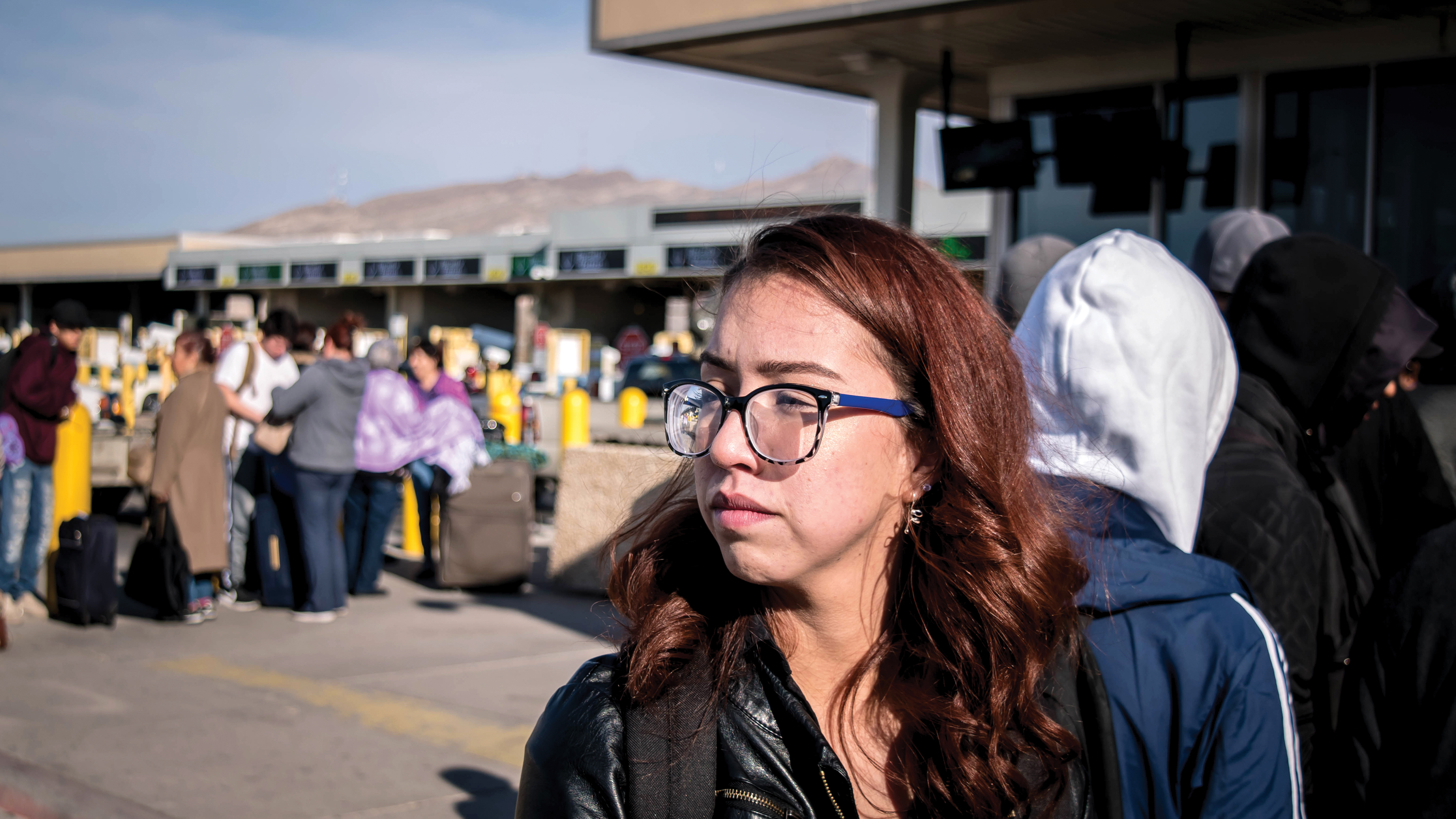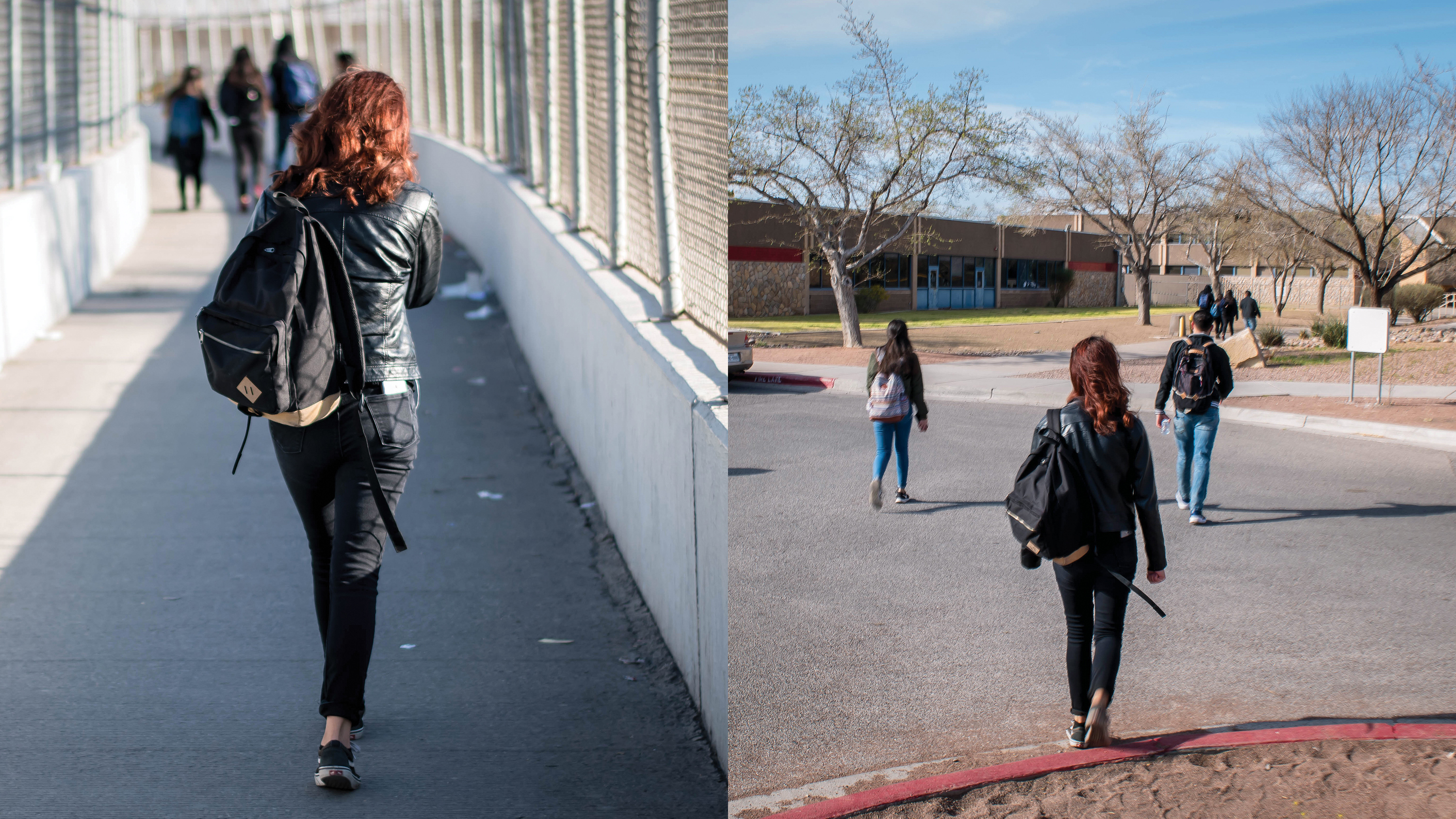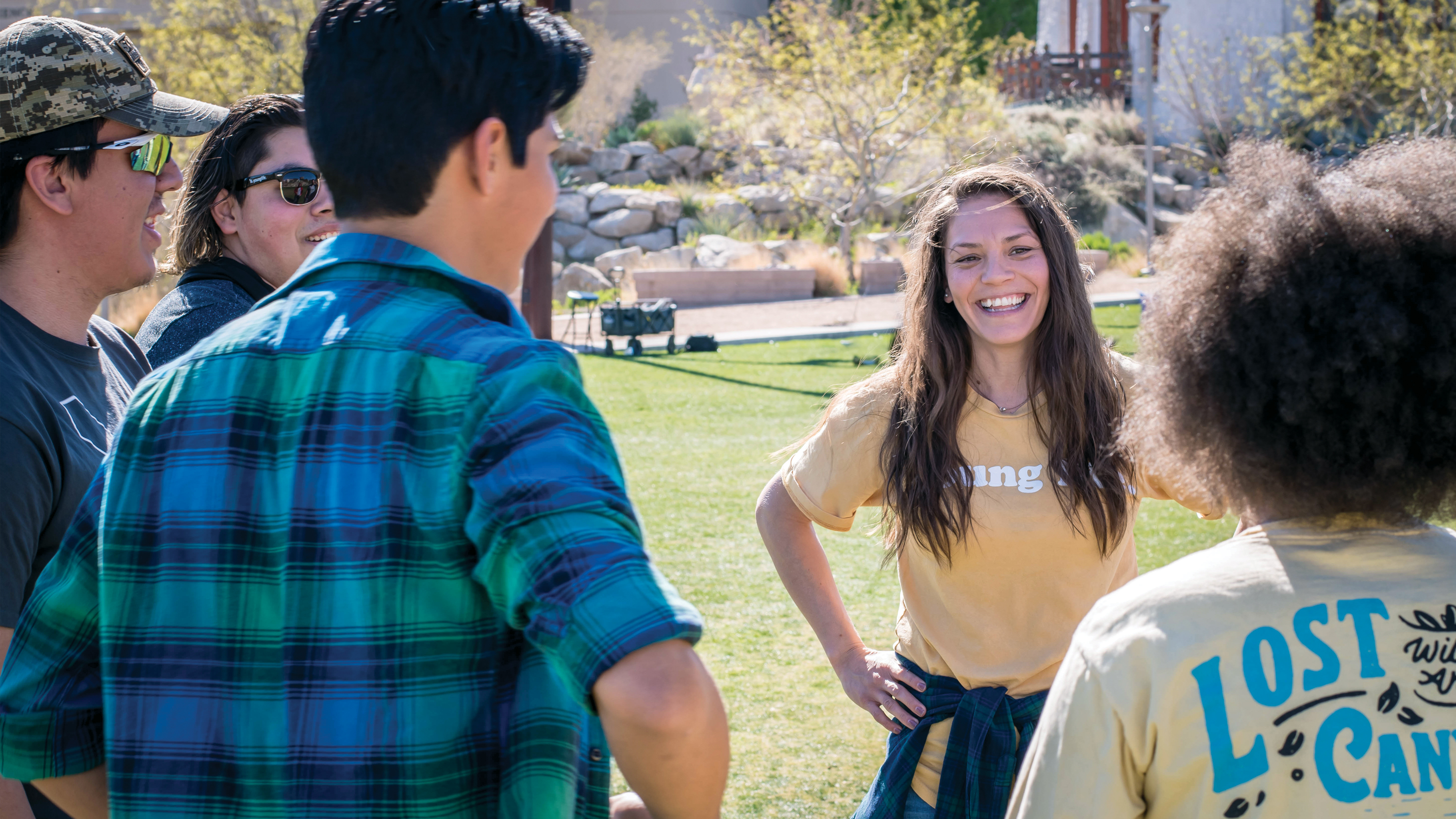Jocelyn Duran’s mother crossed the US-Mexico border 17 years ago to give birth to her in a hospital in El Paso, Texas, making the baby girl the only American citizen in her family. When she was three years old, Duran moved from her mother’s home in Ciudad Juárez, Mexico, to live with her grandmother in El Paso and begin attending school there.
An American education promised opportunity, an opportunity unlike any her family members had known and one she was expected to make good on. Together, she and her grandmother would turn nothing into something. “You start with zero,” Duran says. “Except this big dream.”
Her grandmother, who is undocumented, worked as domestic help. For a time they lived in whatever home the woman was tending. They struggled financially. Over the years, Duran felt torn between the life she was building in El Paso and the family she could almost see just across the trickling Rio Grande. She watched her grandmother, who felt abandoned, drift into hopelessness and eventually abandon her Protestant faith.
Once they were in an apartment of their own, Duran found her way to a church down the street and began developing what she characterizes as a “real relationship with Jesus.” It developed further when she was a student at Bowie High School, where she got involved in her church’s youth ministry. “If you don’t have Jesus, you’re just out here all alone,” she says.
The high school sits less than half a mile from the Cordova Bridge, one of four bridges connecting El Paso and Juárez. In Duran’s junior year, when her family felt she was old enough to walk over the bridge by herself, she decided to move back to Mexico to be with her mother, becoming one of hundreds of students who commute from homes in Juárez to schools in El Paso.
Now 17, Duran gets dropped off each morning at the bridge to stand in line and cross into America. The queue often stretches more than 100 people long, many of them students chatting outside in small groups or, typical for Duran, standing alone with earbuds in. They welcome the morning sun during the chilly desert winter but sweat beneath it in warmer months. Once inside the US Customs office, students separate into a special line just for them.
On foot, the journey from the Mexican side of the bridge to the front door of Bowie takes about an hour—relatively quick compared to the two hours it can take on rainy days when Duran catches a ride with a friend at 6 a.m. and crosses the bridge by car. Delays occasionally make her late to school, but not often. Students file through customs and walk across Chamizal National Memorial Park to Bowie, which is visible from the checkpoint.
At 3:57 each afternoon—Duran is precise about this time—she leaves school and does the crossing in reverse, catching a bus home on the Juárez side of the bridge. When she has tennis practice or swim team, she’s fortunate enough to miss rush hour and her mom picks her up on the other side.
Duran never notified the El Paso Independent School District about her change of residence when she moved in with her mother in Juárez; she’s still registered under her grandmother’s El Paso address. Technically, that is fraud. According to a district representative, any student who admits to living in Mexico “would put himself at risk, since by law we can only provide services to students who reside in El Paso County.” Even for US citizens, lying about residency for the purpose of attending a school district other than your own is grounds for nullifying credits or for expulsion; in some states it’s punishable with hefty fines and jail time.
But the practice has been common for decades in border cities like El Paso, and for the most part, school districts look the other way. (School funding in Texas is attendance-based, so binational commuters in fact bring districts additional state revenues.) Students residing in Mexico use relatives’ addresses to enroll in American schools. Families rent cheap apartments for the mailbox. One Young Life staffer remembers students banding together to pay for an apartment and putting different utilities in each of their names to prove residency.
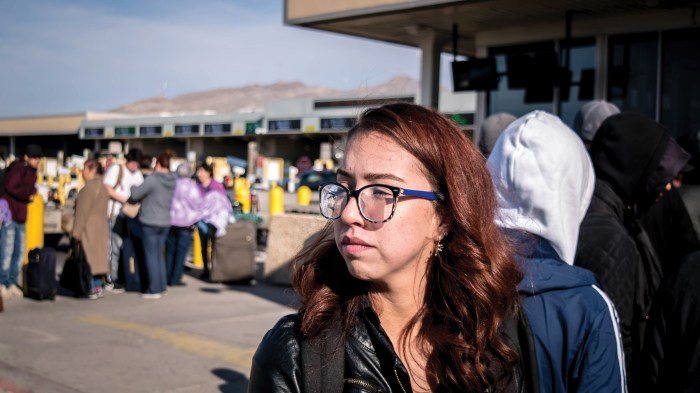 Caleb Bryan
Caleb BryanSchool districts along the border have occasionally tried to crack down on such commuting, even posting photographers at points of entry to identify Mexican students. But Duran and binational students like her often feel they have little choice but to make such moral compromises, goaded forward by the decisions of their parents and by family expectations they may not even be aware of until adolescence. Like any teen, they are awkwardly searching for their place in the world only to realize a wall runs through theirs.
“Sometimes my conscience is like ‘aaahhh!!!!’” Duran says, making explosion gestures around her head. She describes filling out her FAFSA, the federal application for student aid and a standard part of the college application process, wrestling with right and wrong when asked for an address or information about her family’s income.
“It feels like I’m lying,” she says. “But it’s something I have to do if I want the best outcome for my life.”
Whether they have citizenship, temporary status, or no documents at all, immigrant youth commonly feel stuck between two worlds—and as if they might be rejected by either of them at any moment. That tension is especially acute for many teens raised along the southwest border, whose proximity to it makes it that much harder to navigate the societal and logistical difficulties that national boundaries create. For teens like Duran, church youth groups and national networks like Young Life offer a home that transcends the border—a rare place to feel like they belong and sort out what it means to live for Christ in a culture of “the middle.”
“[We tell them] their hope is not in America,” says Young Life leader Bridget Chacón, who focuses on college students in El Paso. “Their hope is in Jesus.”
Last fall, the 33-year-old Chacón stood at a recruiting table in the University of Texas at El Paso (UTEP) student center. Young Life’s highly relational discipleship mission was a natural fit with her outgoing, charismatic personality. Connecting came easily. But the bridge crossers had been a hard group to crack. When she tried to reach out, the students declined invites to events or coffee and rarely explained why. Sometimes they walked campus alone; sometimes they moved in small groups, closed circuits of shared experiences.
Most international commuters at UTEP have student visas or are US citizens living in Juárez, but “if they don’t trust you, they won’t tell you they commute every day,” Chacón says.
That particular day at the Young Life table, however, a new student leader had joined Chacón at the table and she noticed something changing. Andrea Carolina “Caro” Perez Lopez, 24, was chatting with the commuters not only in Spanish, which Chacón could have done, but in the colloquialisms and slang of Juárez. Perez Lopez told the students that she too crossed the border every day on a student visa.
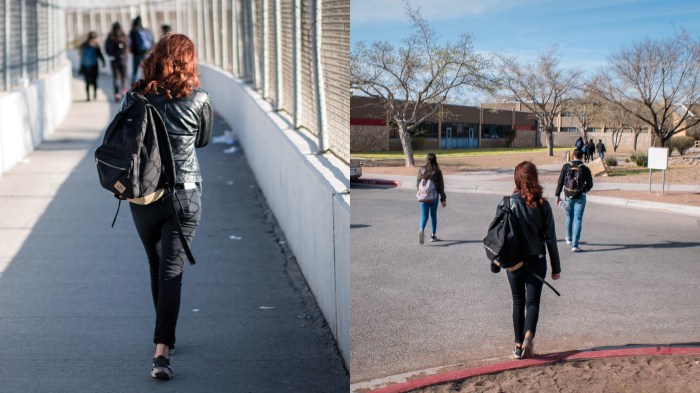 Caleb Bryan
Caleb BryanWhen she began commuting to El Paso for college, Perez Lopez was surprised how isolated she felt. She had the one or two friends she crossed the bridge with every day, but once she got to campus she missed the big social network she’d left behind in Juárez. She was struck by the cultural divide between the Mexican Americans and the Mexicans. Which route you take to school each morning may seem trivial to outsiders, but it was consequential and disruptive to her.
“I felt very alone,” Perez Lopez says. “I needed to find my people.”
Chacón invited her to a pancake dinner, and soon Perez Lopez was hooked on Young Life. Others in the ministry helped her dig into some of the complicated parts of her life, including the pressure that comes along with going to school in the US, the pressure to prove that it was worth whatever sacrifices she and her family made. “I needed to figure myself out in multiple layers,” she says.
Perez Lopez came for the connection but soon found she loved Bible study too. While she grew up Catholic and still considers herself so, she’d never gotten to know the Bible like she did through Young Life, where she found herself “pulling up layers and layers of what Scripture offers.”
With Perez Lopez as their point of contact, more Mexican and binational UTEP students began coming to Young Life events. The ministry to students living in Juárez has grown to the point that Chacón is laying the groundwork to establish a Young Life club there.
Colorado Springs–based Young Life is best known for its work with high school students. But the 0 million ministry enrolls more than 300,000 youth a week in regular club meetings around the world, from middle schools to military bases.
Kim Prieto believes Young Life is, in many ways, the perfect ministry to students whose lives straddle the border. “We’re so used to dealing with messy lives,” says the 62-year-old, who recently retired after working for nine years with Young Life in El Paso and still keeps in touch with many of the high school students she mentored. For her, the complexities of border life pale in comparison to helping teens get out of troubles the border can exacerbate, such as dangerous living situations or sexual abuse. “We never really asked them much about their [immigration] situation unless something came up,” Prieto says.
A few years prior, a teen who had been living in El Paso under the assumption that she was a US citizen asked her parents if she could go to Young Life camp. That’s when her parents told her that she was undocumented and she could not travel. Not only could she not go to camp, she confided in Prieto, but all of her future plans suddenly felt uncertain. “We just walked with her in it,” Prieto says.
One of the most important jobs of Young Life staff on the border, Prieto says, is to build safe and stable relationships with students and offer spaces where they can work through their fears and uncertainties with others. El Paso is ground zero for the national immigration debate—President Trump launched his 2020 campaign there, as did Democratic challenger Beto O’Rourke—and the heat of the spotlight has heightened anxiety in students’ households. “People weren’t coming out of their homes,” says Prieto, who points out that illegal immigration is far less of a conversation in El Paso than it is in other parts of the country. “God is not a God of fear,” she emphasizes with students. “We go boldly with God.”
Holly Smith, 43, teaches high school more than 600 miles southeast in McAllen, Texas, just across the border from Reynosa, Mexico. As the faculty sponsor for Young Lives, a Young Life ministry to teen moms, she says she reminds students, “God has a plan for your life whether you are documented or not.”
Smith has students whose immigration status has trapped them in abusive situations or who were left effectively homeless after their families were deported. She’s opened her home to students who needed temporary places to live and has found others to do the same. Through years of this kind of work, Smith says she’s seen students come to faith in Christ. “I’m going to love these kids and I’m going to take care of them no matter what.”
Smith works with Young Life Rio Grande Valley director Joe Wilson, 37, who says he looks at immigration as one of many sanctification issues in a young person’s life. He helps them sort through their legal options if their status is tenuous, and watches them grapple with lies they feel they have to tell to stay safe or to navigate the seemingly competing expectations of family, peers, and the law. For instance, which commandment takes precedence: honoring your father and mother (and remaining in a US school with a dodgy address), or not bearing false witness?
Christian ethicists have long debated when, if ever, lying might be permissible. Exceptions to the Bible’s general prohibition against deception include Rahab, who lied to protect Israelites from harm and is nonetheless lauded for her act in the Book of Hebrews’ “hall of faith.” And Dietrich Bonhoeffer hit closer to home when he argued, hypothetically, that if a teacher asked a student about her father’s drinking in front of the class, the student could righteously lie because publicly outing her father as a drunk would violate the biblical mandate to honor him.
As Wilson sees it, teens at the border are walking toward righteousness like any other teen; they just may have additional obstacles in their path. “It’s going to take a long time to get there because of the systems that have been set up around [them],” he says. What for one person may be a matter of integrity—such as choosing to live on one side of the border or another—may, for another, be a matter of safety or obedience. Wilson has counseled teens who have good options in Mexico to consider moving back. But if doing so would compromise their safety, he does not encourage it. “The broken political system probably doesn’t supersede the sanctity of life.”
Young Life staff often find themselves in the middle of the brokenness. Annie Mays, the ministry’s area director for San Antonio, tells of a phone call she got recently from a panicked student leader. He’d been in a car accident, riding shotgun with a friend who was, he admitted, driving recklessly. No one was hurt, but the police were on their way.
Mays, 34, knew why he was panicked and calling her rather than a family member. The student was in the country illegally. Mays rushed to the scene of the accident to beat the police there. She wanted to be the first person the officer encountered.
“I had this very gut reaction that maybe my whiteness, or my old-ladiness, or the fact that I was driving up in a minivan” would validate the student in the eyes of the police, she says. There was no reason to detain her student, who was not driving. But she knew that things could quickly go sideways. “These kids don’t have room to make mistakes.”
Young Life leaders across the country and the globe are used to dealing with risky teenage behavior. In that regard, communities along the border are no different. “Every teenager I’ve ever walked with is navigating the fallout of this broken world,” Mays says. If one is undocumented, “will we ignore them because their mess is more intimidating to step into?”
That doesn’t mean Prieto, Chacón, and their counterparts in McAllen and Brownsville, another Texas border town, haven’t had to adapt to the unique needs of immigrant and binational students. Ministry staff help students navigate the immigration system in pursuit of legal status when necessary. Some have obtained their citizenship after a Young Life leader connected them to an immigration lawyer.
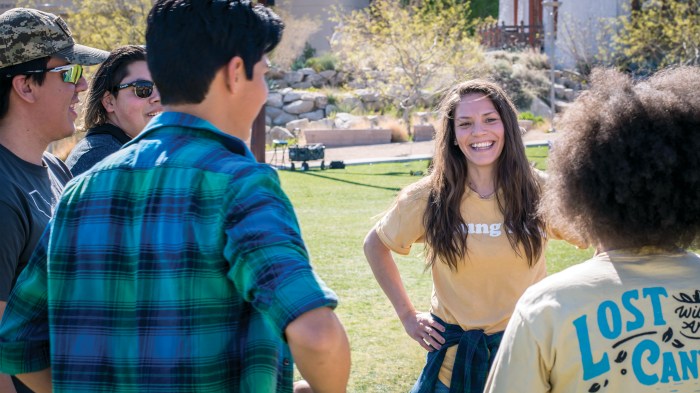 Caleb Bryan
Caleb BryanAmerica’s labyrinthine immigration system can even complicate putting on a local event. Students transitioning from a parent’s work visa to a student visa—a routine and legal procedure—may balk at signing a waiver or registering for an activity for fear they may be crossing an invisible line that will jeopardize their application.“It creates a lot of extra work,” Chacón says. “But if these are obstacles that are keeping these kids from meeting a loving and everlasting God, are you willing to meet them where they are at?”
For Chacón and other Young Life leaders, part of meeting students on their level means discipling them to come to their own conclusions about what is right in their particular situations. They ask questions like, Do you feel the Holy Spirit is telling you that is wrong? and Are you lying because you are afraid? If you were not afraid, would you still feel the need to lie?
“When conviction comes into play, we go to Scripture,” Chacón says. A lot of times, she admits, students try to avoid the big moral questions until they are out of the ambiguous places—until they’ve graduated, gotten legal status, or gotten caught.
The narrative of the American Dream is strong. “It’s worth it to most people,” she says, to aim for the dream—even if it means risking deportation or expulsion or if it means adding considerable stress to their lives. The promise has been part of their imagination since childhood, and Young Life leaders know that for many immigrant families it easily becomes a form of idolatry.
In the end, however, Young Life always comes back to what the kids have in common: Even if they don’t need a lawyer, they still need Jesus, and they still need a friend.
For her part, UTEP student leader Perez Lopez says she’s found her place on the US side of the border over time. As much as city pairs like El Paso and Juárez function symbiotically, the border is still very real. It divides people culturally, economically, and legally. For students whose lives move back and forth over that divide, they need a God who will meet them there, in the middle. He does so, Perez Lopez explains, through his people. With Young Life, “You know whatever side of the border you’re on, you have your people.”
Bekah McNeel is immigrant communities editor for CT.

